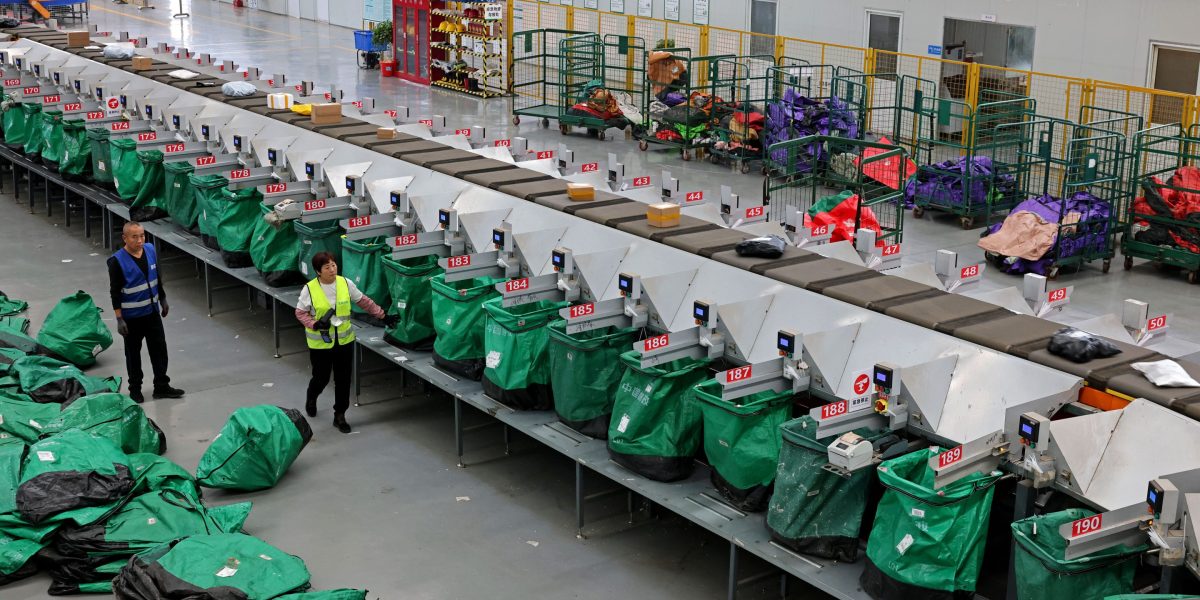☆ Yσɠƚԋσʂ ☆
- 3.51K Posts
- 5.07K Comments
Sure, if a big instance started to dominate the fediverse it would be a form of centralization. However, the protocol being designed with federation in mind makes it much easier for people to migrate from that instance if it becomes a bad actor.
Going back to the original point though, I do think that fediverse could be marketed better in a way that would appeal to more people. Since we agree that federation is a desirable feature, the focus should be on figuring out how to explain it to people in a sensible way.
Sure, but all of this basically comes down to poor marketing. It’s not an inherent problem with the technology or with the concept of federation.
It shouldn’t be surprising either given that Mastodon is a niche platform developed largely as a volunteer effort. The reason people advocating Mastodon tend to focus on stuff like on the flaws of the centralized social media is because that’s what matters to them. We see pretty much the same thing happening with Linux, and many other open source projects.
This is the point I was making above, BlueSky has a professional marketing team that understands how to sell their product to the general public. That’s the main reason BlueSky is gaining users at a faster rate.
Regarding the Gmail problem, it’s true that we could end up with one major instance most people are on. I don’t see that as a huge issue in practice since you can still choose use different instances. That’s a fundamentally better situation to be in.
For example, I don’t use Gmail and I run my own personal Mastodon instance using masto.host, this doesn’t stop me communicating with people on Gmail or major Mastodon instances like mastodon.social.
What I’m saying is that the amount of friction this adds is completely blown out of proportion. It’s just not that hard, and people acting like it’s a huge barrier are not being serious. If this was the case email would’ve never taken off. The fact that we’re at the point where it’s hard to imagine a regular user going outside a walled corporate garden is really the problem here.
Unfortunately people aren’t as informed and most really just don’t care.
The flip side is that we shouldn’t care too much either. Fediverse already has millions of users, and it can just keep growing organically at its own pace.

 9·10 hours ago
9·10 hours agoI expect China will be able to make EUV machines domestically within a few years. What’s more exciting is that China is actively exploring alternative computing substrates. If one of those pans out, then it could make silicon look like vacuum tubes overnight. For example, stuff like this looks very promising https://www.sciencedirect.com/science/article/abs/pii/S2095927323004206
The reality is that we’re now hitting physical limits of what you can do with silicon effectively. There’s really no path forward past 1nm. Whoever manages to scale up production f a new computing substrate first will have a huge advantage going forward. China is most likely to get there before the west because it’s a state driven effort.
Meanwhile, the west largely relies on companies and competition to drive innovation, and it’s not profitable for companies to invest huge amounts of money into research that will take many years to bear fruit. Instead, they focus on short term profits and squeezing what they can out of current technologies.
I don’t think there’s a lot of evidence that federation is a significant obstacle in practice. Email is a great example of a federated platform that even the least tech literate people are able to use just fine. It could be argued that Mastodon onboarding process could be smoother, but that’s not an inherent problem with it being federated.
In my view, the simplest answer is that BlueSky has much better marketing because it has a ton of money behind it and it’s been promoted by Dorsey whom people knew from Twitter. So, when people started abandoning Twitter, they naturally went to the next platform he was promoting.
I’d also argue that there is a big advantage to having smaller communities of users that focus on specific topics of interest and can federate with each other. In my experience, this creates more engaging and friendlier environment than having all the users on the same server. Growth for the sake of growth is largely meaningless.

 2·14 hours ago
2·14 hours agoAbsolutely, and there’s actually been a substantial amount of research on the subject as well. The way we perceive time is a product of our emotional state, and the environment.
Yet, the fact remains that people did get comfortable with email, and even the least tech illiterate people are able to use it.
That’s a recent phenomenon though, and it’s effectively been forced on people by the largest email provider making it difficult to use others. My original point was that people didn’t find it confusing to register for different mail providers when that was easy to do.
You don’t have to make an informed decision. Signing up for an instance isn’t a blood pact. If you find the instance you singed up for isn’t to your liking, You can easily migrate your account to another. Meanwhile, if you’re worried about something you don’t align with, then you don’t even get that choice with a centralized platform like Bluesky. For example, I don’t align with any of this shit https://toad.social/@davetroy/113476788536250587
Mastodon being federated is absolutely not a flaw. This is how the internet was meant to work in the first place. The fact that people got used to using centralized platforms is an aberration and this needs to be actively fought against.
How is picking a Mastodon server different from signing up for email, finding a discord server, signing up to follow channels on youtube, and so on. Somehow people have no problems figuring those things out, but when it comes to Mastodon this is constantly brought up like some insurmountable challenge.

 4·1 day ago
4·1 day agoImagine saying that Rubio is not a completely disgusting prick with a straight face.

 222·1 day ago
222·1 day agoYou lot did this all to yourself. You’re the killer clowns of the world.

 8·1 day ago
8·1 day agoI’m guessing Saudis are gonna hedge their bets the way Turkiye is doing. The very fact that they are starting to hedge against the US is an indication of a huge shift in my opinion.

 11·1 day ago
11·1 day agoBRICS is definitely what G7 sees as the big threat going forward

 4·2 days ago
4·2 days agoIndeed, and I’d argue most of actual useful industry exists outside the west at this point.

 2·2 days ago
2·2 days agoI use Lemmy and Mastodon about equally. I find I like Lemmy for discussions, while Mastodon is good for news just because there are a lot more users overall, and you can follow different news feeds on it.

 2·2 days ago
2·2 days agoThere’s a famous Lenin quote saying that every society is three hot meals away from chaos, and I think there’s a lot of truth in that.

 2·2 days ago
2·2 days agoI don’t think numbers on a computer matter all that much though. US can issue as much currency as it likes, but it’s the material reality that matters in the end. In order to prop up Europe, US needs to produce weapons to send there, same with Israel, and Taiwan. US manufacturing capacity is pretty limited at this point, so they have to pick where to allocate the resources.
Meanwhile, Europe has major problems with its energy supply, and so far the US has been profiteering from selling LNG to Europe at high prices, and poaching European industry. So, we can already see that the whole relationship is turning predatory. This will only get worse going forward. Ultimately, people living in Europe don’t give a shit about stuff like AI, crypto, and so on. They care about being able to feed themselves and keep lights on.

















There are strong incentives for China to push the boundaries with semiconductors. Data processing and analytics is becoming an essential tool in many domains. Being able to process huge volumes of data faster than your adversaries becomes a really powerful strategic advantage. For example, if you can accurately model patterns in global trade, then you can allocate resources better than your competition. That’s just one example where having powerful processing capability is crucial. It’s pretty clear that Chinese leadership sees the potential here, and I expect we’ll see some amazing things happening in the coming years.